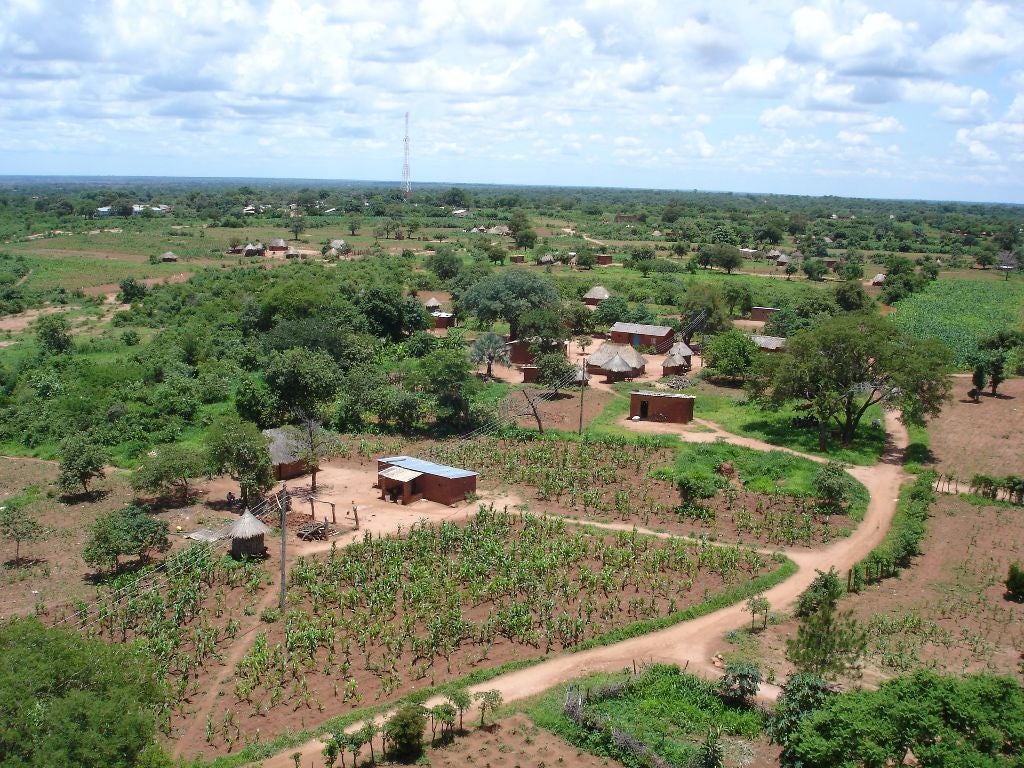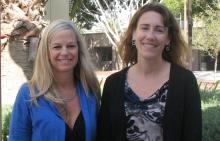
Computer Science and Film and Media Studies Professors Receive NSF Grant to Bring Wireless Technology to Rural Africa

The city of Macha, located in the southern province of Zambia in sub-Saharan Africa, has a population of roughly 130,000. It also has Internet connectivity, but for only a small group of users –– perhaps 300 in all. With a $1.2 million grant from the National Science Foundation (NSF), UC Santa Barbara scholars Elizabeth Belding and Lisa Parks are embarking on a project that will bring the information superhighway to the homes and businesses of everyone in the local community.
"The idea of the work is to build wireless networks solutions to help bridge the digital divide and bring more people online," said Belding, a professor of computer science. "Our goal is to improve performance, get connectivity to everyone –– not just a limited subset of the population –– and improve the user experience." To accomplish that, Belding's research group is working at the frontiers of wireless networking, developing a lot of technology that, at this point, doesn't exist.
"In terms of wireless links and how data is sent from computer to computer within the community, we are in the process of developing wireless network technology to utilize new spectrum," Belding continued. "With radio, for example, each channel is on a different frequency. Radio utilizes different spectrum from TV, which uses different spectrum from Wi-Fi. New spectrum is becoming available that hasn't been leveraged yet, but has really good properties for what we want to do."
The grant, which continues over four years, requires an interdisciplinary collaboration within the project, and that's where Parks comes in. A professor of film and media studies, she has a special interest in the role of information technologies in developing societies and contexts. "I'll be thinking about what it means to develop a socially informed network design," she explained. "We'll be going there before the design of the network is finalized, and we'll be asking people who live in this village about what their needs are, how they're currently using the Internet, and how they'd like to use it in the future."
According to Belding, this aspect of the project is extremely important because it will enable her team to develop solutions that actually meet the needs of the community. "One of the reasons efforts like this in developing regions can fail is because people aren't working in partnership with the community," she said. "They aren't asking the community what they want. Instead, they design something that is technically great, but won't ever be used because it doesn't serve the community's needs."
As Parks conducts her ethnographic fieldwork, she'll be doing qualitative research and interviews with people in the community, most of which will be videotaped. "It's very likely we'll use that data not only to analyze what will be best in the network solutions, but also to publicize how people in this part of the world are engaging with the Internet. It's possible we'll develop a short film to document the work we do there," she said.
One component of the project is to develop VillageCell, a low-cost system that provides free local cellular and data telephone service. "In these communities, almost everyone has a cell phone, but many people do not have cellular coverage," Belding explained. "They often have to walk an hour to get service. One of our solutions is to provide cellular coverage across the entire community so that people can make free local calls. If they have to call someone outside the community, they'll hop on that person's cellular provider's network. But they can do that through our local networks."
The project team consists of Belding, Parks, and several graduate students, who will be assisting with the design of technical solutions as well as fieldwork. Work has already begun on technology development, as well as on the initial studies and surveys that will be conducted on site. "One of the great things about the grant is it brings in a lot of funding for graduate students at UCSB. A number of them will have the opportunity to work on this project," Parks said.
She noted that the project also is a great example of humanities-based research merging with computer science research. "It's a testament of Elizabeth's strengths as a scholar that she's willing to cross academic borders and reach out to somebody in the humanities or social sciences, and want to benefit from that kind of research in the process of developing new computer networks, or wireless networks and technologies," Parks said.
The researchers anticipate that the new technology will branch out beyond Africa to other rural areas. "The characteristics of the community where we're working now are a sparse population in a remote place with little in the way of resources," Belding said. "There are many developing regions that are similar. The type of solutions we're developing should be applicable to any similar environment –– with the caveat of needing to understand the social and cultural nuances of the community."



